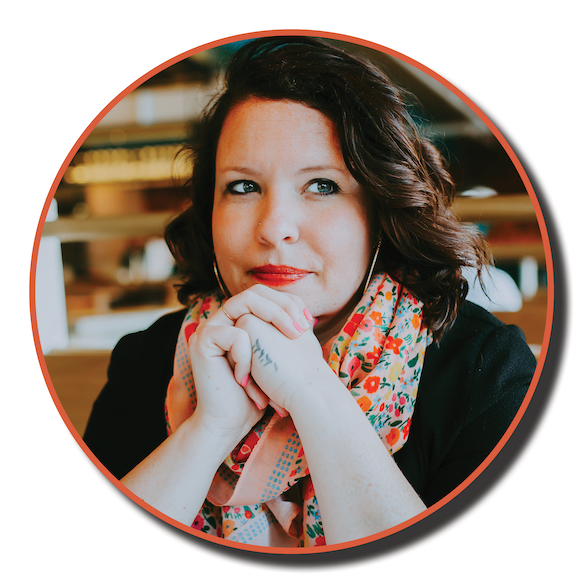Clinical Pastoral Education and the COVID-19 Pandemic: Kaitlyn Bowie
October 18, 2020
The COVID-19 pandemic has altered nearly every aspect of daily life. For Garrett students participating in Clinical Pastoral Education (CPE), these changes have brought new challenges while proving the importance of their work. Clinical Pastoral Education is an accreditation and training program that teaches students how to provide spiritual care in clinical settings like hospitals, nursing homes, prisons, and addiction treatment centers. A significant part of one’s theological education, CPE provides a learning situation for a ministerial student and continuing education for ministers in which they may develop awareness of the theological and psycho-social concerns of persons in crisis.
So what does CPE that look like when the entire world is in crisis? Here’s Kaitlyn Bowie’s story.

Kaitlyn Bowie
Master of Arts in Pastoral Care and Counseling – Clinical Track
Houston, Texas
Considering the COVID-19 pandemic, what concerns did you have with doing CPE? Why did you decide to proceed with CPE this past summer?
I was definitely concerned about completing CPE during the pandemic. When the global health situation became more apparent in the early Spring, I began to wonder if I should proceed with completing CPE this summer. After some thought, prayer, and helpful conversation with my CPE supervisor, I decided that it would not only be ok for me to complete CPE, but that it was important for me to do so. I began to be extremely heartbroken for the people and their families who were dying alone because of the visiting policies due to COVID-19. I wanted to be able to serve these families as a chaplain so that someone could be present and let them know they were prayed for and loved during their final moments.
Ultimately, I felt comfortable moving forward with CPE because of the clear protocols and adjustments my CPE site made so that we could move forward healthily. Of course, the risk was never going to be zero, but my supervisor communicated early and frequently about the regular changes Rush was making to assure our safety during CPE.
Where did you do your CPE training? What impacts did COVID-19 have on your site and on your learning?
I completed my CPE training at Rush University Medical Center, downtown Chicago. Rush made several adjustments to enable our safe completion of CPE. My cohort agreed to strict quarantine practices outside of our work together so that we would be able to complete our verbatim work in a room together. We sat separate from each other, were given consistent access to PPE, cleaning supplies for our cubicle work stations, and had several avenues to process stress related to COVID-19. Rush as a hospital had clear policies regarding daily temperature checks, provided hospital-grade masks, and clear protocols for providing care to all (and especially COVID-19) patients. I felt that I was given frequent access to information that made it possible for me to make decisions that supported my heatlh and the health of all the patients I visited. I really enjoyed working at Rush.
What were the greatest challenges for you personally?
At times I found it challenging to process the intensely emotional experiences I had during the day with those who were still in quarantine-mode outside of the experience (family and friends). Many people I love were not taking the pandemic very seriously and I found that this was very distressing for me. Spending my on-call shifts responding to deaths, frequently deaths due to COVID-19, and then having a conversation with loved ones who thought the media was “overblowing” the situation to cause panic for political reasons, really made me angry. I found my empathy grow towards those suffering from COVID-19 and the implications of the pandemic, but my empathy lessen towards those not taking everything seriously.
What was your greatest take-away from this experience?
My CPE experience was profoundly important to me and contributed greatly to my own pastoral formation. I had an excellent supervisor who not only helped me process my clinical experiences but also served as a catalyst for a lot of personal and emotional growth. My CPE cohort was tremendously supportive and encouraging as I practiced new levels of vulnerability in my processing of difficult experiences. While I of course had a variety of experiences with patients, I am humbled to have been able to support and listen to people in such vulnerable and painful moments in their lives. I also found it meaningful to be moving towards the pandemic problem confronting society instead of huddled away from it. Going to work daily after months of quarantine helped me find daily purpose and meaning in a really complicated and difficult time. I feel honored to have been able to complete CPE during such a profoundly important moment in our world.
I also felt like chaplains were especially important during this pandemic. With the hospital being closed to visitors the majority of my internship, many people welcomed me into their room because they were profoundly lonely, overwhelmed, and scared being in the hospital alone. I am humbled to have been able to be there for people, offering love and presence in a time when presence from a stranger is seen as dangerous.

